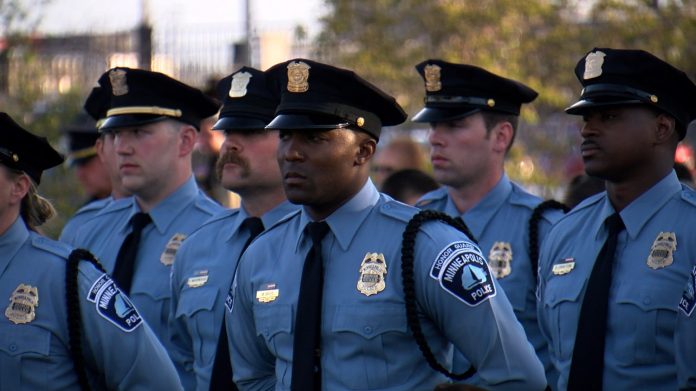Activists hoping to expel or disaffiliate law enforcement officers and their unions from the broader labor movement may not realize how difficult and unrealistic it is.

Since the killing of George Floyd at the hands of a Minneapolis police officer in May, there has been a growing cry for the “labor movement” to expel police “and their unions” from the overall labor movement.
“Workers like me want police ‘unions’ ousted from the labor movement and want cops of all kinds removed from unions and union bodies now,” writes Becca Lewis, an IATSE member, “this will be a crucial part of unchaining labor’s power in the fight against racial oppression.”
No matter how emotionally-appealing it may sound to activists, expelling law enforcement officers and their unions from the union movement is not as easy as it sounds, nor is this is the first time activists have pushed to do so.
Back in 2015, a UAW local in California, which is comprised of 13,000 teaching assistants and other student workers on UC campuses, passed a resolution calling for the AFL-CIO to expel the International Union of Police Associations (IUPA) from the 55-union federation.
Richard Trumka and the AFL-CIO, however, rejected the resolution’s call to expel the IUPA.
“We are not in the business of kicking people out of unions,” Carmen Berkeley, the AFL-CIO’s Civil, Human & Women’s Rights Director said at the time. “What we are in the business of is having conversations with our law enforcement brothers and sisters about how they can have different practices… I do think there’s a lot of reconciliation that needs to happen between communities of color and law enforcement, and we want to be the bridge that helps them get there.”
While that was five years ago, and the calls to expel the IUPA have grown louder following George Floyd’s death, the AFL-CIO’s general board has, again, refused to cut ties with the police union.
Earlier this month, the AFL-CIO’s general board—which is made up of all of the members of the federation’s Executive Council and the principal officer of each affiliated national or international union—issued a statement saying:
“…we respectfully take a different view when it comes to the call for the AFL-CIO to cut ties with IUPA. First and foremost, we believe police officers, and everyone who works for a living, have the right to collective bargaining. We have a dozen affiliate unions who represent law enforcement in some form. There are officers of every color, background and stripe in America.”
“We believe the best way to use our influence on the issue of police brutality is to engage our police affiliates rather than isolate them. Many of our unions have adopted a code of excellence for their members and industries that could and should be applied to those who are sworn to protect and serve. We believe the labor movement must hold our own institutions accountable. A union must never be a shield from criminal conduct.”
For the AFL-CIO, the problem is not merely the IUPA, however.
Many of the other major unions represent not only police officers, they also correctional officers (aka prison guards), which are also considered law enforcement.
This poses an additional dilemma for not only the AFL-CIO and IUPA, but a number of AFL-CIO affiliates and non-affiliates.
For example, AFSCME represents 62,000 corrections officers; the CWA (another AFL-CIO affiliate) represents more than 16,000 public safety officers; and, of course, the Teamsters (which currently is not an AFL-CIO affiliate) represents “tens of thousands of law enforcement officers nationwide.”
Then, there is the National Border Patrol Council (NBPC), a union representing 14,000 U.S Border Patrol agents. The NBPC is an affiliate of the American Federation of Government Employees–an AFL-CIO affiliate.
The Service Employees International Union (SEIU), through multiple divisions throughout the country, represents both police, as well as corrections officers.
While SEIU president Mary Kay Henry prefers to have an internal discussion about expelling law enforcement, she has also said that it is “an option that has to be considered.”
Of course, merely expelling the IUPA from the AFL-CIO, or law enforcement officers from any of the larger unions (affiliated or unaffiliated) will not cause unions to cease to exist for police or corrections officers.
Right now, the Fraternal Order of Police (FOP), which is independent has more than 300,000 members in law enforcement throughout the country.
Similarly, the National Association of Police Organizations (NAPO) represents more than “1,000 police units and associations, and more than 241,000 sworn law enforcement officers.” NAPO is also independent of the AFL-CIO.
If the AFL-CIO and its affiliated unions, as well as the non-affiliated unions, decide to divest themselves of members within the law enforcement professions and the dues they pay, both the FOP and NAPO would likely gain new members and dues.
Related:
- WATCH: Anti-Cop Protesters Vandalize, Attempt To Burn AFL-CIO’s Headquarters
- Teamsters Stand with Law Enforcement Officers





